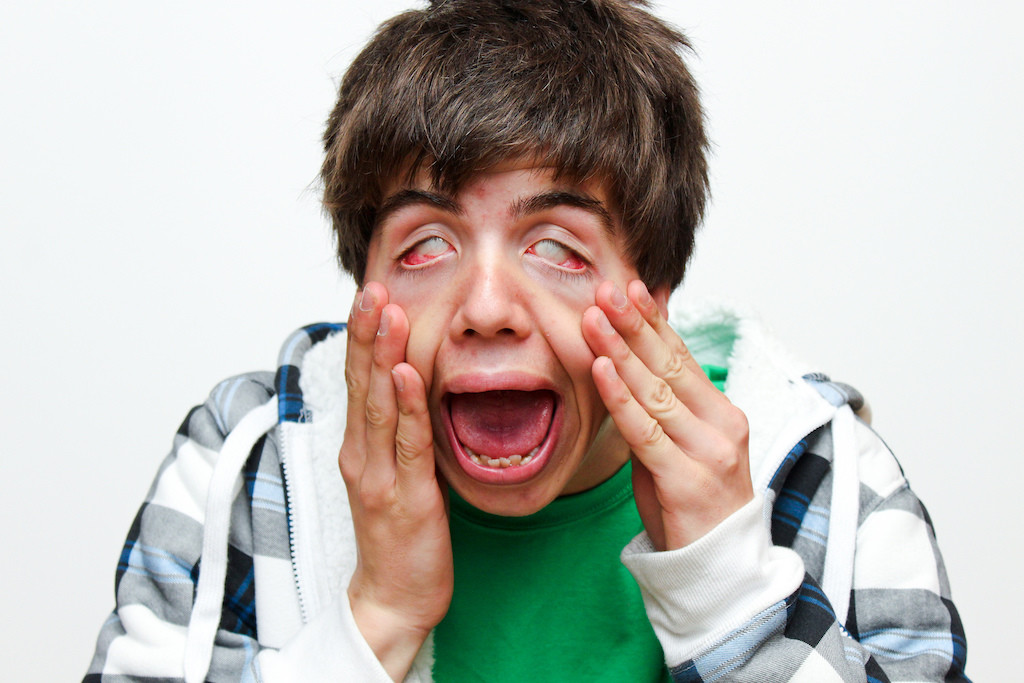You’ve done it.
You’ve captured a magnificent image.
Good for you!
It might be a landscape, taken with impeccable composition. You woke up at an hour that even early birds consider too early. You caught the sunlight drizzling through the scene with an ethereal orange glow.
It might be an action shot. The players’ faces are visible, grimacing in effort and exhilaration as they fight for the ball, puck or javelin. The moment is tense, atmospheric and perfect.
You try to control your emotions as you reflect on the years of learning and experimentation that led to this image.
Then you show that image to a friend.
“Wow,” says your friend. “Your camera takes really good pictures.”
Everything goes red and you can’t be held responsible for your actions for the next 20 seconds.

But wait! Don’t pull your face off just yet…
The Greatest Backhanded Compliment of All-Time
To clarify, I have a very even temperament. I rarely go into rage mode. I don’t have the muscle mass to justify it.
After all, if I can make the job of getting a great picture look easy and effortless, that in itself says something.
And I do appreciate the kindly intention behind the “great camera!” comment, even if it misses its mark by a couple hundred thousand kilometres.
Photography can quickly become a hobby that is defined by what equipment you use. Many a photographer has been pulled into the “if only I had that lens then I could take good pictures” line of reasoning.
But here’s the thing:
Give an experienced photographer a bad camera and give a new photographer a good camera.
Who is going to take better pictures?
(pause for dramatic effect)
Let’s Extend this Line of Reasoning…
Who plays a larger role in the creation of a painting: the painter or his brush?
Who is more responsible for a culinary masterpiece: the chef or his sauce pan?
The tools we use enable us to create, discover and share more than ever before. But getting caught up in the tools themselves suggests an underlying distrust in mankind’s capacity for creativity.
Wow. That was deep. I’d better transition to another topic through a subtitle.
The Arrogance of Photographers
Someone on a comment board somewhere once wrote something like:
“Photographers get all caught up on the issue of people congratulating their camera instead of the person using it. But almost every job has the same problem where people undervalue how difficult it is.”
And that’s true. That’s very true.
(except for when it comes to, like, Brain Surgeons. That seems like a fairly difficult job right from the get go)
As photographers, we choose between a smorgasbord of camera settings, we wrangle with the light or flow of the scene, and then we simplify it to a point where a casual observer can say:
“Yeah, well, I could totally do that if I had your camera.”
That’s a good thing.
It hurts a bit, but it’s a good thing.
Basically, if there’s one point that I could make if I had to summarize everything down to one short paragraph, it would be this:
When cameras can intelligently take pictures by themselves, that’s called AI. And when that day comes, the robot apocalypse won’t be far behind.
Crap, this whole post sounded pretty elitist and snobby, didn’t it?
I find that it’s really hard not to sound elitist when talking about photography. A lot of discussions quickly become a “nobody understands me, I’m such a misunderstood butterfly” kind of thing.
It’s hard to talk about a hobby that relies so heavily on creativity and ingenuity without at least hinting that I consider photographers to be a fairly creative and ingenious people.
That’s not my goal here.
I know that it’s unrealistic to expect people to understand all the nuances of photography from the start. Professionals use fancy cameras and get great results, which implies that there is a correlation between a good camera and a good picture.
So whenever someone tells me that my camera takes good pictures, I have my response armed and ready.
I take a deep breath and then say:
“Thanks.”
Cause at least it’s better than them looking at the picture and saying:
“Yeesh! You should buy a new camera.”
– – –
